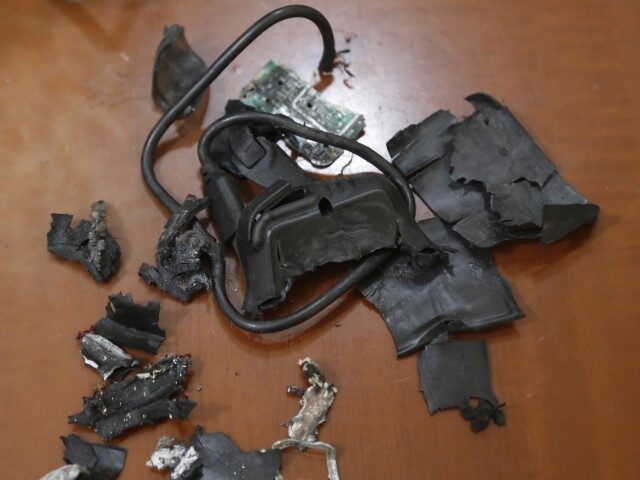One of China’s top diplomats encouraged the world to oppose “attempts to weaponize and/or politicize supply chains” on Thursday in the context of hundreds of mysterious explosions targeting Hezbollah terrorists in Lebanon this month.
The explosions, officials in the country confirmed, were caused by pagers, walkie-talkies, mobile phones, solar panels, and other everyday devices, apparently modified to contain explosive material. Estimates suggest at least 32 people were killed, including children, in the explosions and thousands injured.
The origin of the products – and the obscure supply chain that put them in the hands of Hezbollah jihadis – has raised alarm around the world over the possibility of weaponizing ordinary objects by intercepting them along massive, often opaque, supply chains.
“Every company that makes or sells physical devices will be worrying about the integrity of their supply chain,” James Grimmelmann, a professor at Cornell Law School, told Al Jazeera. “They are likely to consider adding additional safeguards and verifications so that they can better detect and prevent moves like this.”
China, as the world’s largest manufacturing country and often the origin country of many of these supply chains, was among the first to condemn the blasts in Lebanon and begin suggesting, through its social media arms, that the incident should not have an effect on sentiments towards globalized economies. Hua Chunying, a vice minister of foreign affairs and one of the top voices at the Foreign Ministry, suggested that concerns about the safety of Chinese products aired aloud could be an indication of interest in weaponizing them, not genuine worries about this occurring.
In a message posted to Twitter – which is illegal for non-elite Chinese citizens to access – Hua accepted the threat to supply chains, but appeared to lay it squarely on skeptics on the status quo.
The massive pager and walkie-talkie explosions in Lebanon reveal at least three hard facts: 1 Civilian devices could be remade into deadly weapons. 2 Trojan malware could be implanted somewhere in supply chains,” she wrote, “3 Those absurd accusations against Chinese-made EVs, cargo cranes, Internet equipment, etc. could actually tell what the accusers might be doing.”
“For the sake of world peace, attempts to weaponize and/or politicize supply chains must be stopped,” she urged.
Hua appeared to be responding to investigations that found that the two most common devices that exploded, pagers and walkie-talkies, appeared to be manufactured by companies that denied doing so. The pagers bore the brand label “Gold Apollo,” a tech company in Taiwan. Executives with the company told journalists after the attacks that they did not manufacture the beepers, however – they licensed their brand out to a mysterious Hungarian third party, “BAC Consulting,” that then took control of the manufacturing process. Gold Apollo has indicated it would sue BAC for the reputational damage caused by the explosions.
The implicated walkie-talkies were apparently a model developed by the Japanese company Icom, which also denied manufacturing them. Icom officials said they had not manufactured the particular model of walkie-talkie involved in ten years – but pointed to shady Chinese e-commerce sites, where counterfeit models were easily and cheaply available en masse.
“In China, there are dozens of shops selling Icom-branded walkie-talkies on e-commerce platforms such as Alibaba.com, Taobao, JD.com and Pinduoduo, including in some cases the IC-V82 model,” the news agency Reuters found in an investigation following the Lebanon explosions.
Reuters later reported that the walkie-talkies “were laced with a highly explosive compound known as PETN,” potentially during the manufacturing process.
Experts noted following the revelation possibly linking Chinese manufacturers to the targeted Hezbollah attacks that compromising Chinese products in complex supply chains was a significant threat, and Americans “should be wary of continuing to rely on Chinese supply chains for critical goods in our economy.”
“This exposes the kind of risk that we’ve been running, with hardware and software running in countries of concern,” former Senate Armed Services Committee policy director Mark Montgomery told the Washington Post.
While the attacks involved much smaller devices, an area of particular concern is the manufacture of electric vehicles (EVs), which China has increasingly cornered. China Strategic Risks Institute (CSRI) warned this month, for example, in a report that the British government is creating national security vulnerabilities by allowing an increasing share of EVs in the country to be sold by Chinese companies.

COMMENTS
Please let us know if you're having issues with commenting.